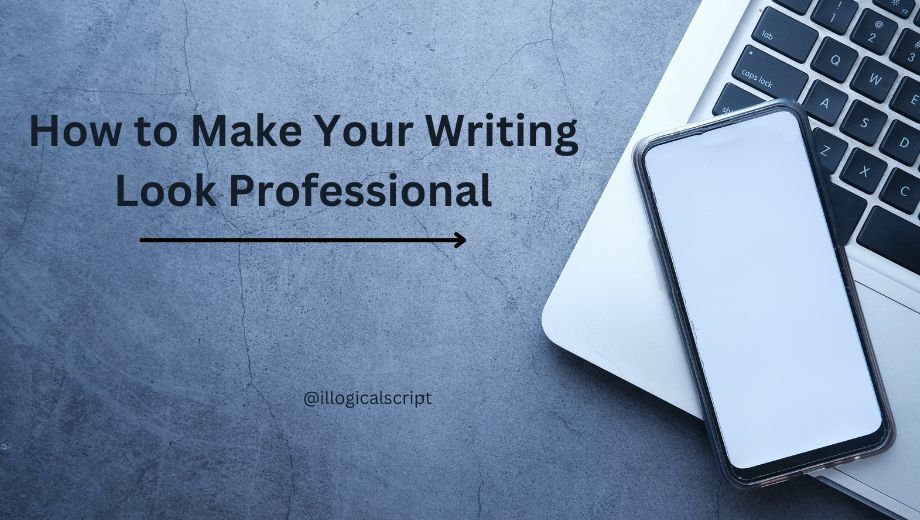Professional writing that has been polished is not only a wise investment but also enhances the appearance of your company. It is alive to use language. With the help of fresh social and technological advancements, it develops more quickly than we do.
New words are emerging, while the meanings of existing terms are shifting. Since language is evolving, so should the individuals who use it. Working with words involves constantly striving to improve.
It’s idealistic and untrue to believe that inspiration and talent alone are what distinguish great writers. It takes some effort to be good, and even more to be great, particularly for someone writing professionally.
Don’t be alarmed if the idea of always improving yourself makes you nervous. It doesn’t take much effort to notice significant advancements. With only four steps, you can do a lot.
Best Writing Techniques for Professionals
Your writing must be professional if you want to catch your readers’ attention and persuade them to comply with a request or respond to a query. However, it’s equally crucial that your writing be simple to read and comprehend. The best advice for formal business writing is provided below.
1. Pick Short, Powerful Words
You can send letters to coworkers, peers, business partners, clients, industry leaders, or even regulatory authorities. Every audience must be catered to. But regardless of who will be reading your work, you should produce simple, dynamic sentences.
The written word is streamlined by an article rewriter. To choose straightforward and active wording, use an article rewriter.
Stay away from “noun + weak verb” combinations. Instead, try using a verb that is clear and powerful.
Using hidden verbs may not seem like a big deal because your reader should understand what you intend, right? But the total of these readability obstacles adds up. You can better connect with your readers by keeping your writing as straightforward as possible. It encourages people to interact with and act on the knowledge.
2. Reduce Your Word Count
Directly and succinctly state your point. When a single, powerful word will suffice, avoid using two or more. Additionally, check your statements for ambiguity. You don’t want anything to be open to interpretation. Make every word count, but also use concise sentences and simple-to-understand terminology.
Although communicating your ideas succinctly and clearly in the fewest possible words requires thought, it results in considerably more successful communication. Additionally, no one has the patience or time to read lengthy, rambling missives these days.
3. Read The Content You Intend to Write
Understanding how a final piece of writing can appear will help you with your own. Reading amusing short stories will help you write a humorous short story while a book review will help you see how an organized article is written.
Pay attention to their positive qualities and the traits you want to imitate. You can ask your instructor for samples of well-written papers from previous students if you’re working on a school assignment.
To write better, include reading in your daily life. It might be a good idea to read the news in the morning or to grab a book before you go to bed. Start with topics that interest you, or ask friends and family for recommendations. You’ll eventually start to realize what topics, genres, and writers you like.
4. Consider Your Structure

Grammar and spelling helps to keep your writing consistent and readable, but structure guarantees that the reader will understand the main ideas.
In many situations, drawing an outline will aid in establishing structure. What you want to say in each part can be made more explicit with an outline. It enables you to see how your piece flows and reveals areas that need more investigation or thinking.
Depending on the type of writing you’re doing, structure may seem different. The traditional structure of an essay is an introduction, body paragraphs, and a conclusion. An author of fiction might use the six-stage story structure. Determine what serves your need the best.
5. Grammar and Spelling Check
Spend a few extra minutes re-reading your work for errors in spelling and punctuation. This is the quickest way to write something that seems professional. Also, don’t rely on the grammar and spelling checkers in your selected app. Change the typeface by copying and pasting the writing into another app. Even if it’s an extra step, you’ll find more problems.
Keep in mind that different spell and grammar checkers have different rules depending on the operating system and, occasionally, the program. Therefore, as an aspiring good writer, it is up to you to choose what to improve or overlook.
It’s a good idea to make sure that the app’s English language preference is set to the area for which you are writing. All of these variants have subtle distinctions, yet they have the power to drastically alter how a reader perceives a piece of writing.
6. Proofread
Even though it can be tempting to submit work right away. Set aside some time to go back and edit your work to catch all kinds of mistakes. Before you edit, put your work away. Try taking a day or two off from writing so you can return to it with new, objective eyes.
You can get into the rhythm of proofreading by starting with simpler adjustments. It enables you to read through your work again and removes distractions, so you can concentrate on more extensive changes.
Overusing words might obscure your point and mislead the reader. Reduce the length of any statements that are unnecessary, cliche, or obvious. You can spot uncomfortable words and places where your writing doesn’t flow properly by reading it aloud.
Final Words
Just keep in mind that it’s okay if you try applying what you learned here to the actual world and notice little to no improvement. The fact that training to be a professional writer is a very expensive and time-consuming procedure is one of the key reasons you don’t often run into exceptional authors.
The only right way to accomplish it is to have a professional over your shoulder who continuously points out any potential mistakes you may be doing. Therefore, if you are having trouble getting better on your own, don’t give up. It’s typical.
Don’t forget to check out some of our other articles as well:




